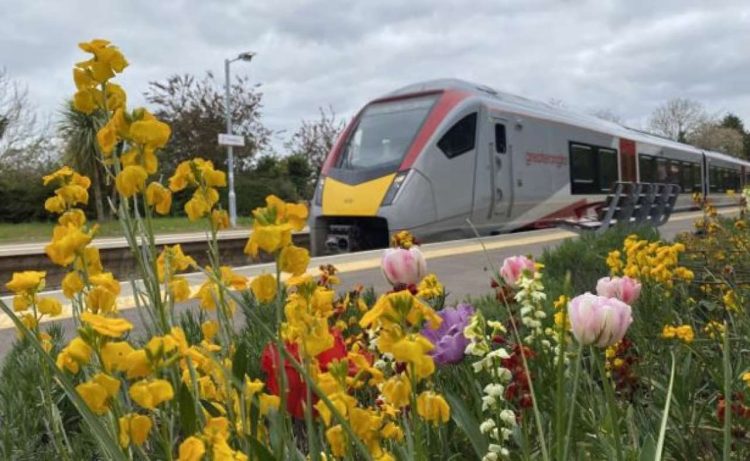Norwich Railway station has received ‘Wildlife Friendly Station’ status in recognition of work carried out by the volunteer ‘station adopters’ who have created several wildlife havens at the station.
Greater Anglia has worked alongside Norfolk Wildlife Trust to create the ‘Greater Anglia Wildlife Friendly Stations Accreditation Scheme’ in a bid to recognise and support the ongoing work of ‘station adopters’ across its network.
Norwich station adopters achieved their accreditation after a Norfolk Wildlife Trust Conservation Officer visited the station in order to ascertain how their impressive work has supported local flora and fauna alongside, providing further tips and advice on how to make the station even more friendly to wildlife.
During the visit, the ecologist found a number of sites which supported microhabitats, including a wildflower area, shrubs and trees alongside 28 plant species which support the local wildlife to thrive in an urban environment.
Greater Anglia currently has 19 stations which have achieved a ‘Wildlife Friendly’ status with a number set to be certified in 2024. Over 300 volunteer station adopters have taken up the challenge of creating havens for wildlife at their stations, seeing more than 7,400 square metres of land transformed into wildlife gardens over the last year. The environmentally friendly scheme has seen the following creatures at their stations:
- Many types of butterflies
- Bees
- Slow worms
- Bats
- Foxes
- Toads
- Lizards
- Deer
- A large variety of birds with over 200 different species recorded.

Greater Anglia alongside the rest of the UK rail industry has pledged to make stations throughout the country more sustainable and has seen action taken to:
- Reduce waste
- Support local wildlife
- Cut the carbon footprint of railway stations
The work being carried out is made following the industry’s Sustainable Stations: Best Practice Guide, which provides information to rail operators on how they can meet these aims and, in turn, support global decarbonisation goals.
James Hogg, Development Officer at the Norfolk Wildlife Trust, said:
“The alarming decline in the abundance of wildlife and the plight of species under threat means that just protecting the nature we have left is not enough; we need to put nature into recovery, and to do so at scale and with urgency.”
“This project with Greater Anglia is a fantastic example of how people can transform nature-poor areas into new nature-rich places – and change the way we think about land, seizing opportunities to help nature outside traditional nature reserves.”
Alan Neville, Greater Anglia’s Customer and Community Engagement Manager said:
“We’re delighted to partner with the region’s wildlife trusts to formally recognise the valuable work of our station adopter volunteers in supporting wildlife and improving their local environment.”
“I’d like to congratulate the volunteers at Norwich station on receiving this recognition and thank them for the incredible work that they are doing that is helping to support biodiversity locally.”
“Their work also makes the station more attractive for passengers and the local community.”






Responses